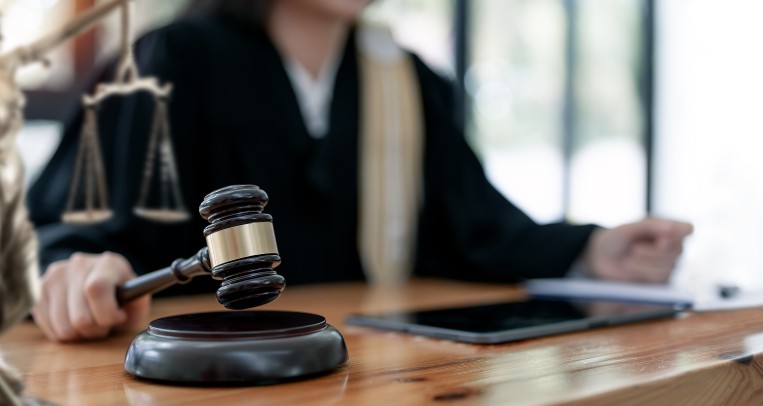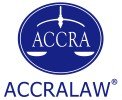Recent Philippine IP jurisprudence and their implication to IP owners
14 September 2024

Compared to other jurisdictions, Philippine IP laws and jurisprudence are relatively young. Recently, there has been a notable influx of significant case law that contributes to the development and enrichment of the field of IP in the country. Norberto O. Sarigumba III, Luis Alfonso F. Manlangit and Rowen D. Palma explain.
A recent influx of significant case law has contributed to the development and enrichment of intellectual property law in the Philippines. Below, we will discuss important cases in the fields of copyright, patents and trademarks.
Copyright
In the case of Icebergs Food Concepts, Inc. v. Filipino Society of Composers, Authors, and Publishers, Inc. (FILSCAP), promulgated on April 12, 2023, the Supreme Court ruled in FILSCAP’s favour on a copyright infringement case against Icebergs, a popular restaurant chain in the Philippines.
FILSCAP discovered that Icebergs played around 324 copyrighted musical works in its restaurants from 2010 to 2014 without paying the corresponding licensing fees. After several unheeded demand letters, FILSCAP was constrained to file a civil case of copyright infringement for violation of the copyright holders’ right to public performance. The trial court found Icebergs guilty of copyright infringement and was ordered to pay over P1,300,000 (US$23,400) in damages. After the appellate court upheld the trial court’s prior ruling, Icebergs went before the Supreme Court to plead its case.
The Supreme Court ultimately found Icebergs liable for copyright infringement, and that it engaged in “public performance” by playing radio receptions of musical works through loudspeakers. The Supreme Court also held that playing copyrighted music from radio broadcasts through loudspeakers as background music in restaurants for the entertainment of customers and for the enhancement of their dining experience falls beyond the protection of the fair use doctrine. As a result, businesses continuously profit to the detriment of the economic rights of copyright holders.
In the same decision, however, the Supreme Court recognized that when it comes to playing music through radios, there should be a distinction between big businesses (e.g., Icebergs) and small businesses (e.g., eateries, canteens, food carts, carinderias – small food stalls with limited seating). The Supreme Court was aware that a sweeping ruling would be prejudicial to small business owners where it could hardly be said that ambience is a consideration for their customers.
As such, the Supreme Court recommended that Congress craft legislation similar to the Small Business Exemption Rule found in the U.S. Copyright Act, where small commercial establishments are generally not held liable for copyright infringement when, among others, they play musical works through equipment commonly used in private homes. The Supreme Court further provided guidance to Congress by formulating the “Three-Step Test,” where exemptions to the copyright holders’ rights must: (a) cover only certain special cases; (b) not conflict with the normal exploitation of the work; and (c) not unreasonably prejudice the legitimate interests of the copyright holder.
The ruling of the Supreme Court in the Icebergs case presents a significant development in the enforcement of the Philippine copyright law, particularly when it comes to musical works and their unauthorized performance to the public. This is especially beneficial to individual artists and companies who lose significant portions of their profit from the many businesses which use their copyrighted works without authorization and payment of the required licensing fees. By categorically ruling that playing music from the radio through loudspeakers does not amount to fair use, the Supreme Court fortifies a copyright holder’s right to public performance, violations of which are usually justified in the past by simply invoking fair use.
On the other hand, this ruling also serves a wake-up call for the country’s legislators to come up with the much-needed amendments to current copyright law (primarily the Intellectual Property Code of the Philippines) in order to also protect the interests of small business owners who may be unjustly prosecuted for copyright infringement. The Supreme Court’s “Three-Step Test” in the Icebergs case, while a novel addition to Philippine copyright jurisprudence, is already codified in the international agreements to which the country is a party to, such as the Berne Convention and the TRIPS Agreement. Indeed, the “Three-Step Test” is a step towards the creation of a more equitable copyright system that looks after both copyright holders and small Filipino businesses alike.
Patents
Patent owners and respondents in infringements suits in the Philippines should be aware of how patent infringement is assessed following the landmark ruling in Phillips Seafood Philippines Corporation v. Tuna Processors, Inc. Promulgated on February 6, 2023, the case is the latest addition to the limited Philippine jurisprudence on patents, and a leading case on how patent infringements suits are to be resolved. ACCRALAW successfully represented Phillips Seafood Philippines Corporation (Phillips) in the case.
Kanemitsu Yamaoka, co-inventor of Philippine Patent No. I-31138, titled “Method for Curing Fish and Meat by Extra Low Temperature Smoking” filed a patent infringement complaint against Phillips with the Intellectual Property Office of the Philippines (IPOPHL). Yamaoka alleged that Phillips used the patented process without authorization. Phillips denied this, claiming its process does not include the cooling unit specified in Patent I-31138.
The IPOPHL found no literal or equivalent infringement and dismissed the complaint. However, the appellate court reversed the decision, ruling that Phillips’ process used similar methods as Patent I-31138, making Phillips liable for patent infringement under the doctrine of equivalents.
The Supreme Court ultimately ruled that Phillips’ process did not infringe Patent I-31138. In determining the existence of infringement, the court, for the first time, highlighted a two-step analysis: first, interpreting the patent’s claims to establish their scope and meaning; and second, comparing the allegedly infringing product or process against the standard of the properly interpreted claims.
The court ruled there was no literal infringement, as Phillips’ process includes three steps not found in Patent I-31138.
To assess infringement under the doctrine of equivalents, the court traditionally applied two tests: the “insubstantial difference” test and the “function-means-result” test. The “insubstantial difference” test identifies infringement when minor changes are mere substitutes for the patented elements, while the “function-means-result” test determines whether an infringing process, despite modifications, performs the same function and achieves the same result as the patented invention.
In this case, the court introduced in the Philippine legal system the “all elements” test, which requires that the doctrine of equivalents be applied to each individual element of a patent claim rather than assessing the entire invention. Although derived from U.S. case law, this test is supported by the Philippine IP Code and is applied “to avoid the possibility that courts will enlarge the scope of a patent when applied too broadly to the invention as a whole and thereby eliminate an element in its entirety.”
The court first applied the “insubstantial difference” test and the “function-means-result” test. The court found that while the functions and results of Phillips’ and Patent I-31138’s processes are similar, the methods used are different. Phillips uses filtered smoke at ambient temperature, whereas Patent I-31138 specifies smoke cooled to between 0°C and 5°C. There was also no evidence that Phillips’ method of cooling both smoke and meat simultaneously achieves the same claimed preservative effects as the patented method.
The court then applied the “all elements” test and determined that only the initial steps of Phillips’ process are equivalent to the initial elements of Patent I-31138, while the other remaining steps and elements are not considered to be equivalent. Consequently, the court ruled that there was no infringement under the doctrine of equivalents.
This case represents a notable step in advancing local patent jurisprudence. First, under the two-step analysis to determine patent infringement, claim construction is now a prerequisite for an infringement analysis. Second, the case shows the importance of the elements of a claim. To reach a finding of infringement, it must be shown that every element of the claim or its equivalent is present in the allegedly infringing product or process. Third, the court reiterated that the burden of proving patent infringement rests on the plaintiff. The ruling provides a comprehensive framework that offer valuable guidance for patent owners and potential infringers in the Philippines.
Trademarks
The case of Cymar International, Inc. v. Farling Industrial Co., Ltd., promulgated on August 17, 2022, lays out multiple consequential trademark rulings that Philippine trademark owners may consider noting.
The case involves a Taiwanese manufacturer of baby products (Farling) and its Philippine distributor (Cymar). Under the parties’ distributorship agreement, Farling authorized Cymar to sell Farling products, including those bearing Farling’s FARLIN trademark registered in its name in Taiwan. A dispute on marketing expenses led to Cymar registering five variations of the FARLIN trademark in its name in the Philippines. Upon knowledge of this, Farling filed a cancellation suit against those five marks. The case was decided in favour of Farling by the IPOPHL and the appellate court. While this cancellation case was pending, Cymar thrice attempted to register variations of the FARLIN mark in its own name in 2006, 2007 and 2008. Farling opposed each attempt and again received favourable rulings. All these cases were then consolidated with the Supreme Court.
The Supreme Court ultimately ruled in favour of Farling.
The court first clarified that all trademark registrations in the Philippines that subsisted when the IP Code of the Philippines took effect in 1998 are deemed to have been granted under said law, per Section 240.2 thereof. Therefore, all subsisting trademark registrations, whether procured before or after the effectivity of the IP Code, will follow the IP Code rule on trademark ownership, which is that registration is the basis for acquiring ownership over a trademark.
The rule on registration notwithstanding, the court held that although Cymar was the first to register the trademarks in the Philippines, as a mere importer/distributor of Farling’s products, it cannot claim prior use and registration of the mark in the Philippines. A distributor/importer does not acquire any proprietary interest in its principal's trademark; its use thereof inures to the benefit of the foreign manufacturer.
The court further ruled that Cymar registered the FARLIN marks in bad faith, which is a ground for the cancellation of a trademark registration under both the old and new laws. Bad faith in trademark registration was defined as “knowledge of prior creation, use and/or registration by another of an identical or similar trademark.” Given the circumstances surrounding Cymar’s trademark applications, it was obvious that they were filed with full knowledge of Farling’s history of use of the FARLIN mark.
Additionally, the court delineated between the remedies of cancellation and opposition. It stated that these remedies are analogous and governed by substantially the same procedures, only differentiated by the fact that cancellation is the proper remedy after registration, while opposition is the proper remedy while the application is pending. Thus, the court ruled that “the grounds for cancellation of a mark [...] may also be raised in an opposition to an application for registration of a mark, and vice versa, particularly with respect to marks sought to be registered fraudulently or contrary to the provisions of the [IP Code].”
The ruling in this case is significant for three reasons. First, under the old trademark law, it was prior use that determined trademark ownership. Given the ruling above, the prior use rule in determining trademark ownership is abandoned, whether the marks were registered under the old trademark law or the IP Code. Second, this case reiterates that foreign trademark owners using their marks in the Philippines are still accorded a degree of trademark protection from bad faith filers even if the foreign owners do not register their trademarks in the Philippines, so long as they are able to prove their prior use and ownership of the mark in other jurisdictions and their contractual relationship (importer, distributor, etc.) with the bad faith filer. Third, even though the IP Code cites bad faith as a ground for cancellation, this ruling means that it may also now be used as a ground for an opposition case.
Conclusion
At this juncture, it is emphasized that although these decisions are effective and binding at the time of writing, future decisions may overturn or abandon these doctrines. It is thus imperative for IP owners to keep tabs on recent developments in the Philippine IP legal field and make the necessary adjustments, if any.










